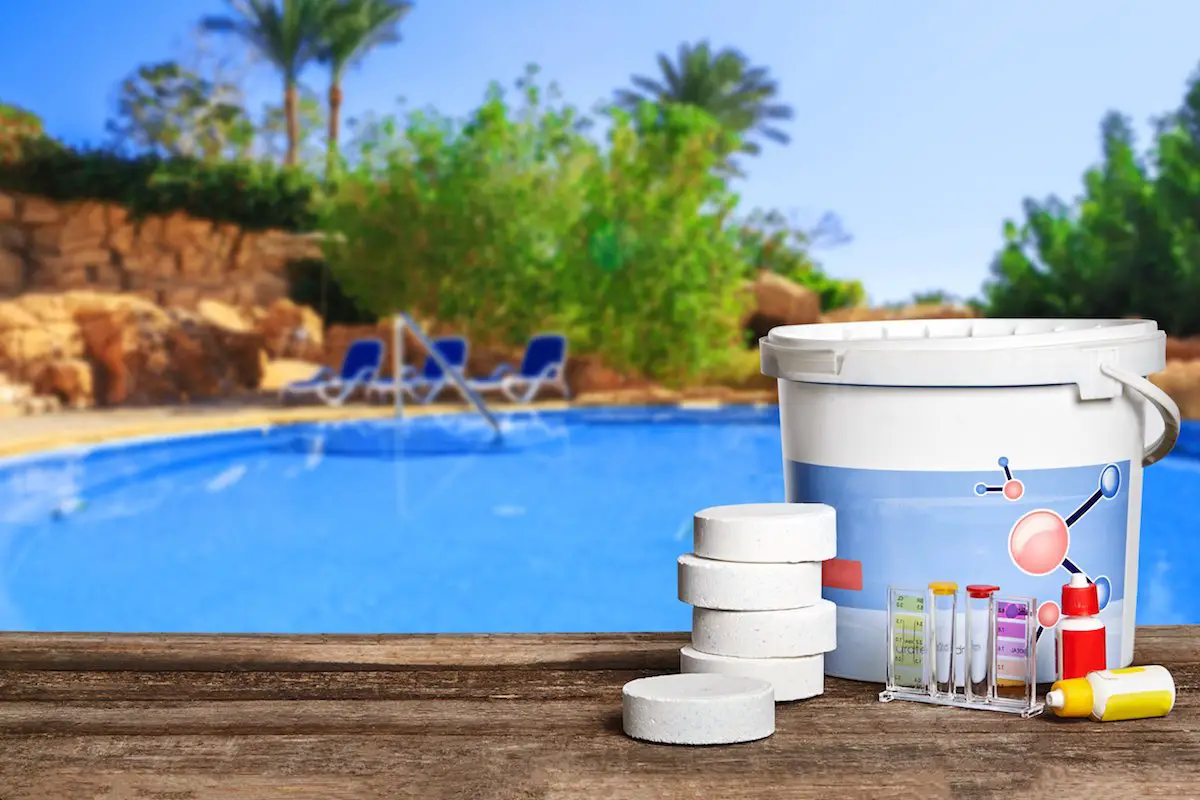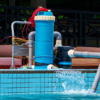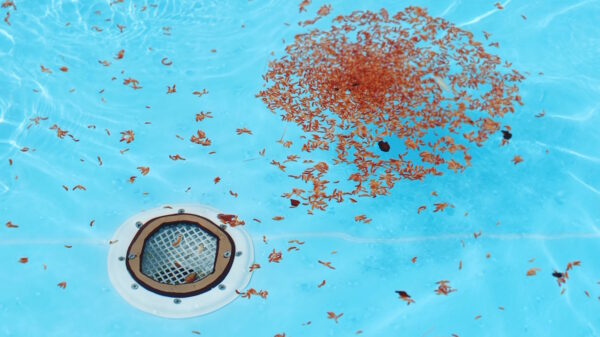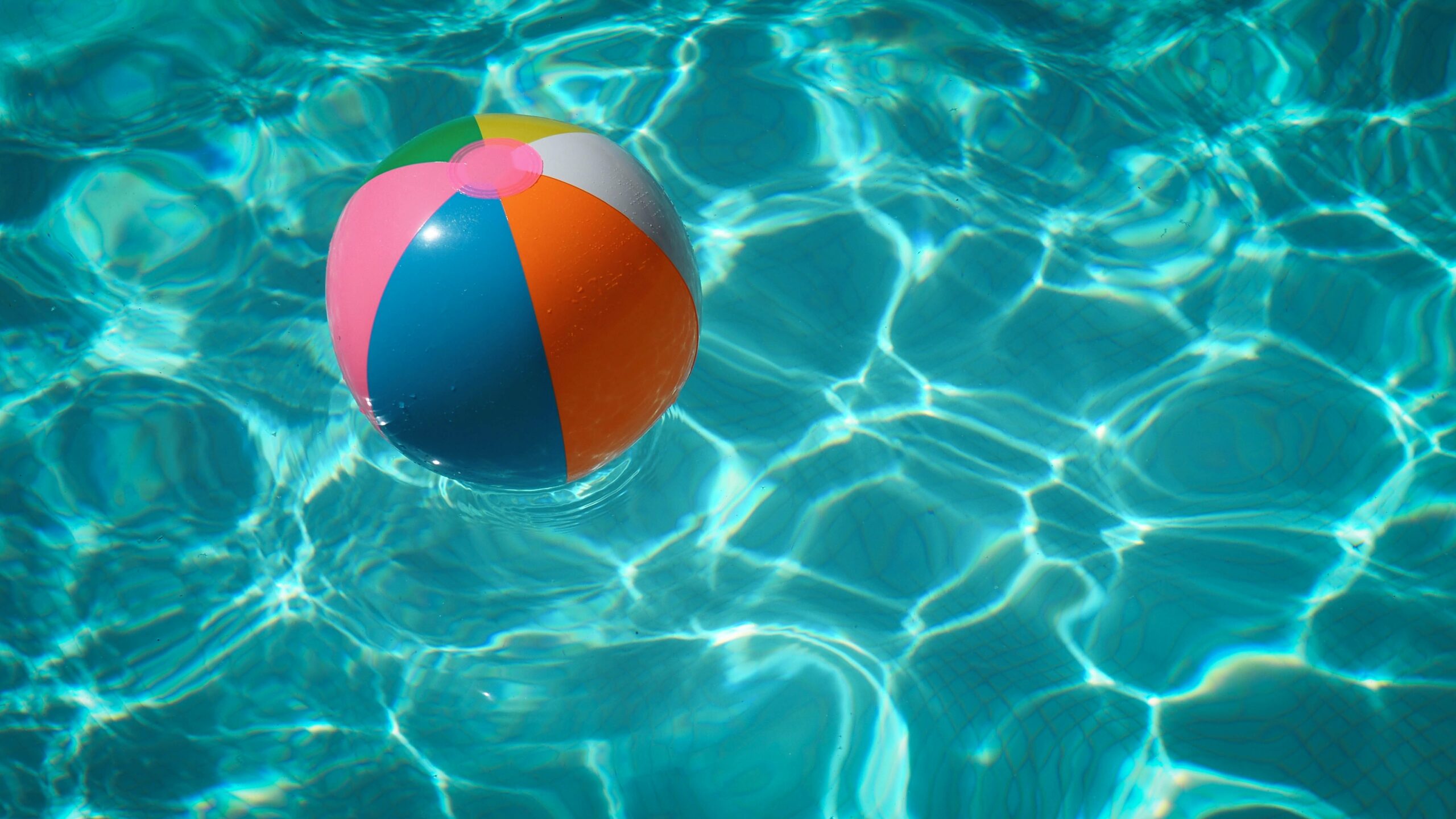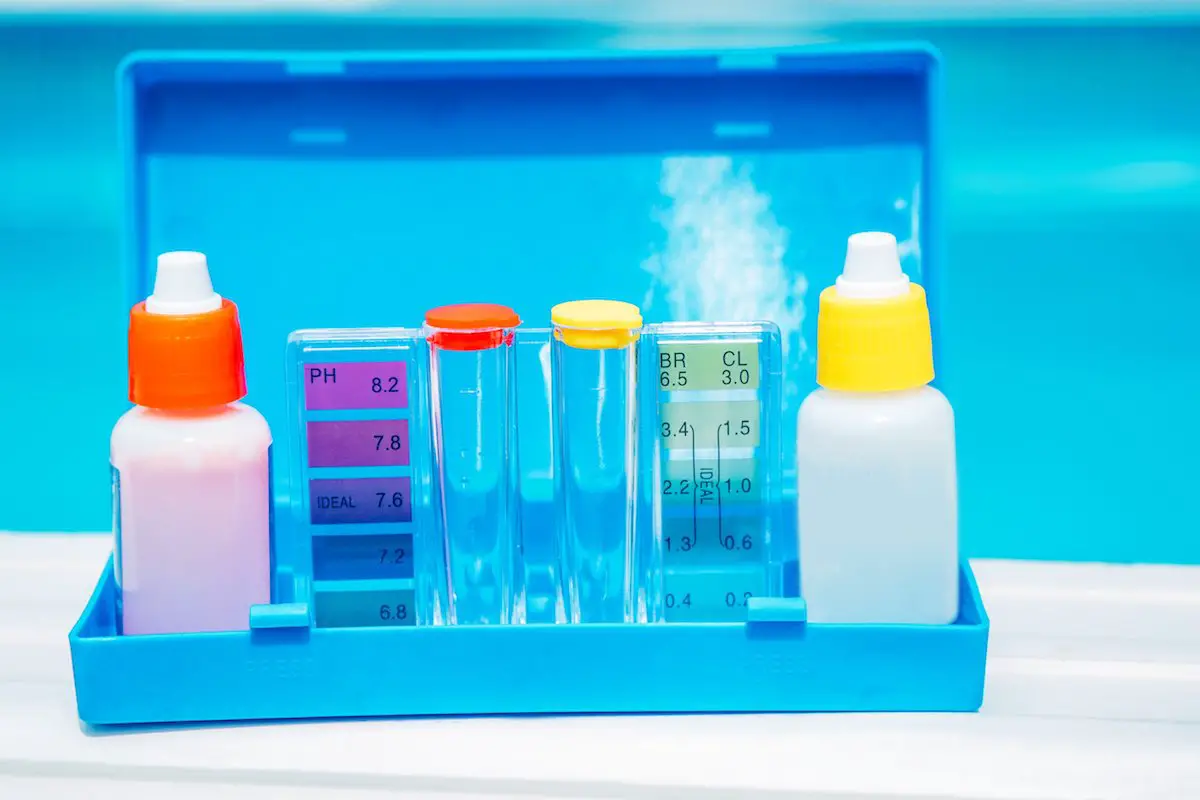If you’re not familiar with cyanuric acid, it’s a chemical that is used to stabilize chlorine levels in swimming pools. It can be added to pool water either through pre-mixed products or by measuring and adding it directly to the pool.
So should I add cyanuric acid to my pool? It’s important to have the right level of cyanuric acid in your pool in order to ensure that the chlorine stays effective and doesn’t dissipate too quickly. Therefore, it is an essential part of pool care, as it helps keep outdoor swimming pools safe and clean.
In this blog post, we will discuss whether or not you should add cyanuric acid to your pool and provide some tips on how to do so safely!
Should I Add Cyanuric Acid to My Pool?
There are a few things to consider before adding cyanuric acid to your pool. First, you need to make sure that your pool is properly balanced and doesn’t have any other chemical imbalances. If your pool water is not properly balanced, adding cyanuric acid can make the problem worse. You also need to consider the size of your pool and the amount of chlorine that you typically use. If you have a small pool or you don’t use a lot of chlorine, you may not need to add cyanuric acid.

What is Cyanuric Acid?
Cyanuric acid is a chemical compound that is used to stabilize chlorine levels in swimming pools. It does this by slowly releasing chlorine into the water, which allows it to remain effective for longer periods of time. As it helps to keep chlorine from degrading in sunlight, which keeps the pool water clean and sanitary. Because of this, it is often added to pool water in order to keep the chlorine levels balanced and prevent them from fluctuating too much.
How Does Cyanuric Acid Work?
Cyanuric acid works by slowly releasing chlorine into the water. This helps to keep the chlorine levels balanced and prevents them from fluctuating too much. When adding cyanuric acid to your pool, it’s important to follow the directions on the package carefully in order to avoid over- or under-dosing your pool.
Things to Consider Before Adding Cyanuric Acid to Your Pool
| The size of your pool |
| The amount of chlorine you typically use |
| Whether or not your pool is properly balanced and doesn’t have any other chemical imbalances |

Is Cyanuric Acid Safe?
Cyanuric acid is generally safe to use in swimming pools. However, it’s important to follow the directions on the package carefully and not to over- or under-dose your pool. Additionally, if you have a small pool or you don’t use a lot of chlorine, you may not need to add it at all.
However, cyanuric acid is only safe to use in outdoor pools, not for indoor pools. Therefore, it should never be used in an indoor pool.
Should You Worry About Cyanuric Acid Coming Into Contact with Your Skin?
Cyanuric acid is not harmful if it comes in contact with your skin. However, you should avoid getting it in your eyes, as it can cause irritation. If you do get cyanuric acid in your eyes, flush them out with water for 15 minutes and seek medical attention if the irritation persists.
What Are the Problems with Using Cyanuric Acid?
Cyanuric acid can cause problems if it is not used correctly. Over-dosing your pool with cyanuric acid can make the chlorine less effective and can also lead to skin and eye irritation. If you do end up adding too much into your pool, the best thing to do is drain it, at least a partial drain.
It’s also important to note that cyanuric acid can remain around, even after a drain. It won’t be as high as right before you drained the pool. However, even with a complete drain, the it can stick around. If you do drain the pool because the levels are too high, you’ll want to check the water before you go add any more of this.
You’ll also want to ensure that your system can handle cyanuric acid. If you’re system automatically adds chlorine for you and the chlorine levels drop because of the slow release of cyanuric acid, you may end up with too much chlorine in your pool.
How to Add Cyanuric Acid to Your Pool
If you’ve decided that you want to add cyanuric acid to your pool, there are a few things you need to do in order to do so safely. First, you’ll need to purchase some from your local pool supply store. Make sure to follow the directions on the package carefully, as adding too much to your swimming pool can cause problems. Once you’ve added the cyanuric acid, be sure to test your pool water regularly and adjust the levels as needed. You may need to add it more often if you have a lot of people using your pool or if you live in an area with a lot of sunlight. Here are some tips for adding this to your pool:
- Follow the directions on the package carefully.
- Test your pool water regularly and adjust the levels as needed.
- Avoid getting cyanuric acid in your eyes, as it can cause irritation.

Related Questions
How Long Does Cyanuric Acid Last?
Cyanuric acid lasts for a long time in pool water, it has the ability to extend the life of chlorine in your pool by as much as 8 times in direct sunlight. However, it’s important to test your pool water regularly and adjust the levels as needed.
What Are the Benefits of Adding Cyanuric Acid to Your Pool?
The benefits of adding cyanuric acid to your pool include stabilizing chlorine levels and preventing them from fluctuating too much. Additionally, it can help to keep your pool water balanced and free of chemical imbalances.
Final Thoughts
Adding cyanuric acid to your pool can be beneficial. However, it’s important to do so carefully and according to the directions on the package. Be sure to test your pool water regularly and adjust the levels as needed. Avoid getting it in your eyes, as it can cause irritation. Be sure to consider your equipment, frequency of use, sunlight, and pool size before adding cyanuric acid to your pool.

